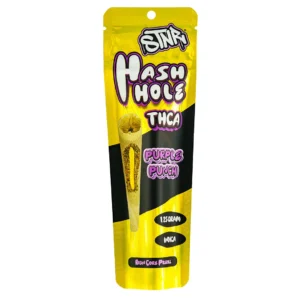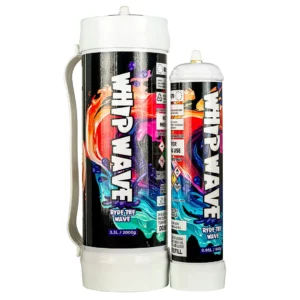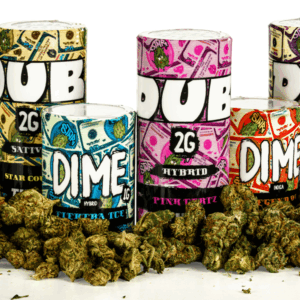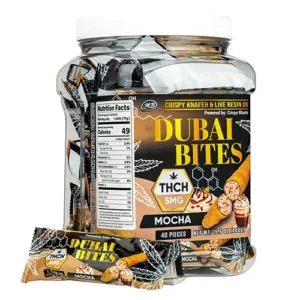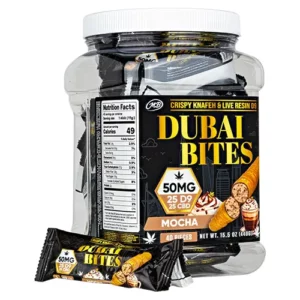In the ever-evolving world of wellness, natural remedies, and cannabis culture, a new compound is making waves — THCA. If you’ve been hearing more and more people talking about it and wondering what the buzz is all about, you’re not alone. Whether it’s your health-conscious friend, a wellness influencer, or even your neighborhood dispensary, THCA seems to be the new star of the show. So, Mom (and anyone else curious), here’s everything you need to know about THCA — what it is, why it’s trending, and whether you should be paying attention to it.
What Exactly Is THCA?
Let’s start with the basics. THCA stands for tetrahydrocannabinolic acid, and it’s a naturally occurring compound found in raw and live cannabis. It’s actually the precursor to THC, the well-known psychoactive component that gets users “high.”
The key difference? THCA itself is non-psychoactive, meaning it won’t make you feel intoxicated when consumed in its raw form. It only becomes THC after undergoing decarboxylation, which happens when cannabis is heated — through smoking, vaping, or cooking.
In simple terms:
- THCA = raw, non-psychoactive compound
- THC = heated, psychoactive version
The Science Behind THCA
Cannabis plants produce THCA in their natural state. Through the process of aging or heating, THCA loses a carboxyl group (COOH), converting into THC, which then interacts with the brain’s endocannabinoid system to produce the high we associate with cannabis.
Interestingly, while THC binds with CB1 receptors in the brain to create a euphoric effect, THCA does not bind in the same way, which is why it does not induce the “high.”
But despite not getting users high, THCA is being closely examined for its potential therapeutic effects, making it appealing to people who want the medical benefits of cannabis without the mind-altering side effects.
Why Is Everyone Talking About THCA Now?
So why is this compound suddenly popping up in wellness blogs, dispensary menus, and TikTok trends?
-
The Rise of “Raw Cannabis” Consumption
As people look for more holistic and plant-based health approaches, raw cannabis juicing and extracts are becoming more popular. Consuming cannabis in its raw form preserves THCA, making it ideal for people looking to harness cannabis’s benefits without altering their mental state.
-
Wellness and Therapeutic Benefits
Emerging research and anecdotal evidence suggest that THCA might have anti-inflammatory, neuroprotective, and anti-nausea properties. Some users report relief from conditions like arthritis, epilepsy, and even some autoimmune diseases.
-
Legal Loopholes and Accessibility
In some jurisdictions where THC is still tightly regulated or banned, THCA is legal because it’s not psychoactive in its natural form. This creates a legal gray area that allows products high in THCA to be sold more freely — especially online.
However, authorities are starting to crack down on this loophole, as THCA easily converts to THC when heated.
-
The Cannabis Industry Is Evolving
The legal cannabis industry is expanding rapidly, with companies constantly exploring new cannabinoids to meet customer demand. Just as CBD exploded in popularity a few years ago, THCA is now taking its turn in the spotlight.
Potential Health Benefits of THCA
Though research is still in the early stages, studies and anecdotal accounts suggest THCA may provide a variety of health benefits, especially in non-psychoactive medical cannabis applications.
-
Anti-Inflammatory Effects
Some studies have shown that THCA may have powerful anti-inflammatory properties, making it potentially useful for chronic pain, arthritis, and autoimmune conditions.
-
Neuroprotective Properties
Early research suggests that THCA might help protect nerve cells and slow the progression of neurodegenerative diseases such as Parkinson’s and Alzheimer’s.
-
Anti-Nausea and Appetite Stimulation
Preclinical studies, especially in animal models, suggest THCA may reduce nausea and vomiting — similar to THC — but without the intoxication.
-
Potential Anti-Cancer Properties
Some lab studies have looked at THCA’s ability to slow the growth of cancer cells, though this research is still very preliminary and largely confined to test tubes.
How Do People Use THCA?
Unlike THC or CBD, THCA must be consumed without heat to retain its natural form and effects. Common ways to consume THCA include:
- Raw cannabis juicing: Fresh cannabis leaves and buds are juiced to create a nutrient-rich beverage.
- Tinctures and oils: Some manufacturers offer cold-pressed cannabis tinctures that preserve THCA.
- Capsules or supplements: These provide a controlled dose without any taste or preparation.
- Topicals: THCA-infused creams and balms are used for localized inflammation and pain relief.
It’s important to note that smoking or vaping destroys THCA, converting it into THC.

Is THCA Safe?
Most of the evidence so far suggests that THCA is well tolerated and doesn’t carry the psychoactive risks of THC. However, there are some important caveats:
- It can convert into THC when heated, so if not used properly, it can still result in intoxication.
- It’s unregulated in many areas, meaning quality control varies.
- Long-term effects are unknown, as research is still limited.
As with any supplement, it’s smart to consult a healthcare provider, especially if you’re taking other medications or have a chronic illness.
THCA vs THC vs CBD: A Quick Comparison
| Feature | THCA | THC | CBD |
|---|---|---|---|
| Psychoactive? | No | Yes | No |
| Found In | Raw cannabis | Heated/aged cannabis | All cannabis strains |
| Common Uses | Anti-inflammatory, neuroprotective | Recreational, pain relief, nausea | Anxiety, inflammation, epilepsy |
| Legal Status | Often legal | Varies by location | Generally legal |
What Products Are Available with THCA?
The market is beginning to see an influx of THCA-rich products, especially in states where cannabis is legal. These may include:
- THCA flower (sold for raw use or conversion)
- THCA tinctures
- THCA pre-rolls (intended for conversion into THC)
- THCA diamonds (a concentrated form of crystalline THCA, often dabbed or smoked)
Caution: many of these products are marketed as non-psychoactive, but once heated, they definitely can get you high.
So, Mom — Should You Try THCA?
That depends on your goals. If you’re looking for a natural, non-intoxicating supplement that might offer anti-inflammatory or neuroprotective benefits, THCA could be worth exploring.
However, it’s not a cure-all, and research is still catching up. As with anything in the wellness world, it’s best to approach with curiosity and caution, do your research, and consult your doctor if you’re considering using it for medical reasons.
Final Thoughts
THCA is part of a growing trend in cannabis science that’s expanding beyond just “getting high.” It offers a glimpse into the therapeutic power of cannabis in its purest, rawest form. As researchers continue to explore its potential, THCA might play a pivotal role in future natural medicine.
So yes, Mom — everyone is talking about THCA right now, and now you know why.

